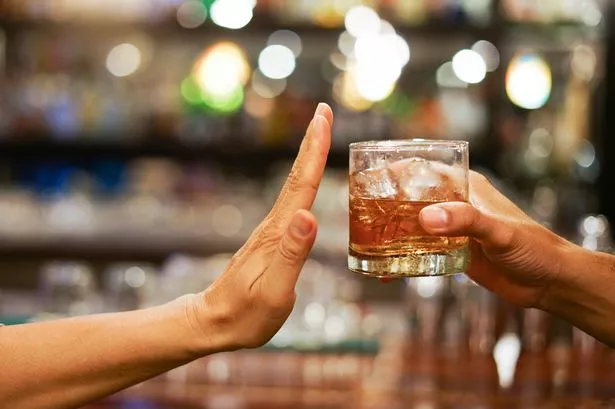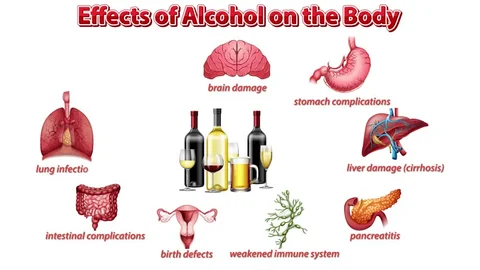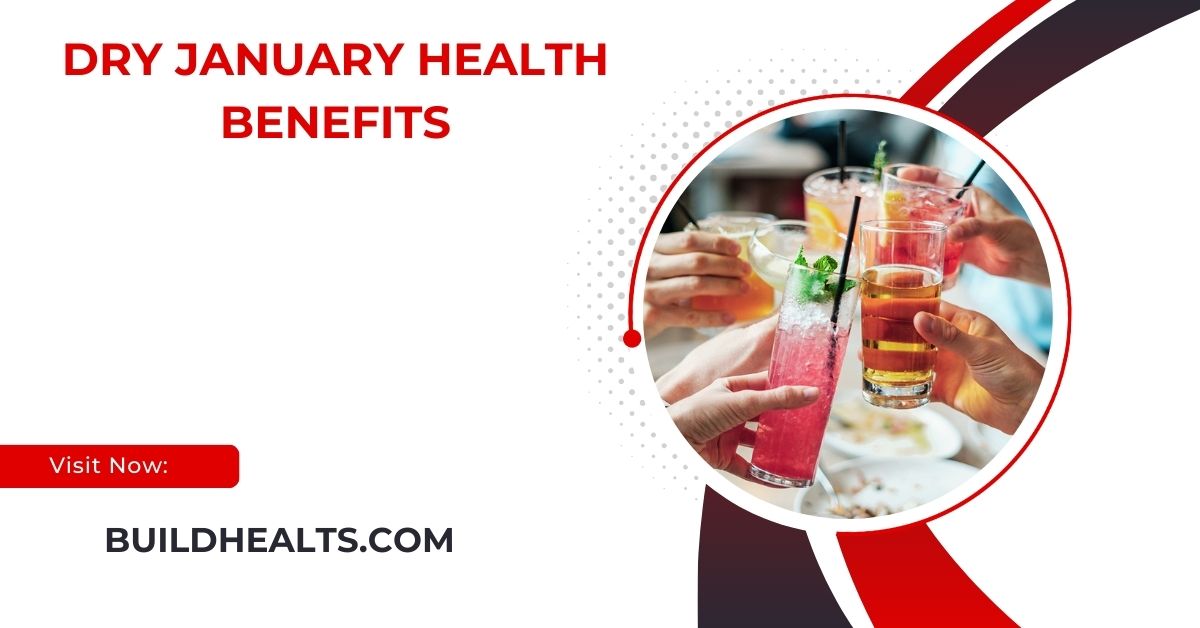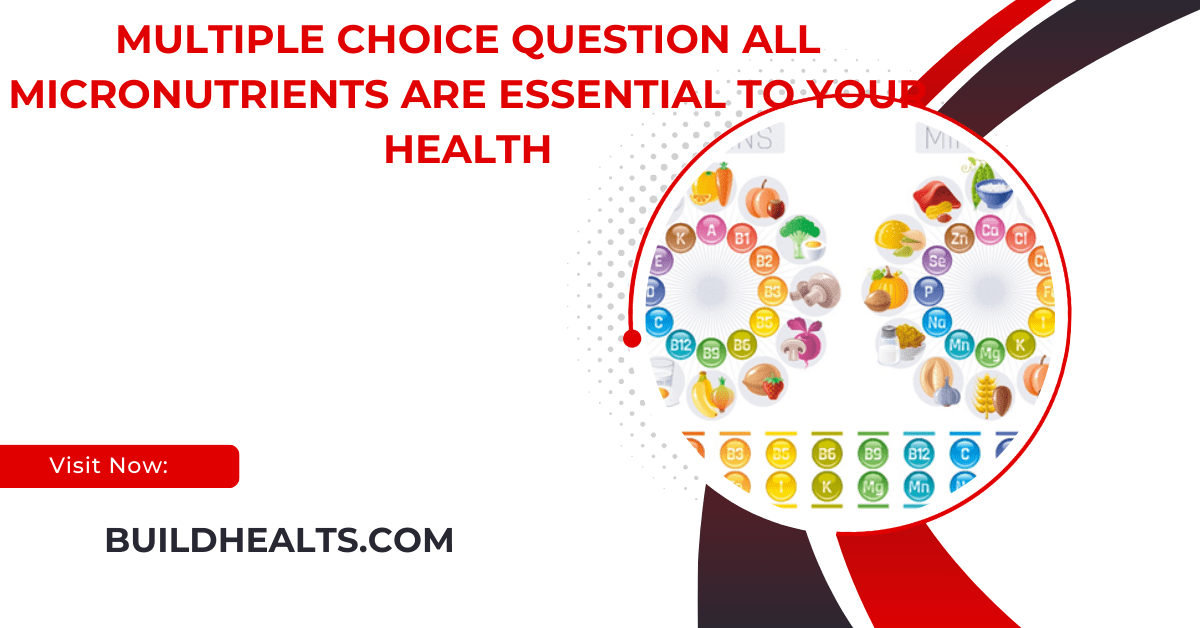Dry January is a month-long initiative that promotes abstaining from alcohol, improving physical and mental well-being, and encouraging healthier habits and savings.
In this article, we will explore the various advantages of Dry January and how it can positively impact your physical and mental well-being.
What is Dry January?

Understanding Dry January:
Dry January invites people to stop drinking alcohol for the month of January. It serves as a chance to reset after the holiday season, where many enjoy festive drinks and rich foods. This initiative raises awareness about alcohol consumption, encouraging individuals to reflect on their drinking habits and consider making healthier choices.
Origin of Dry January:
Dry January originated in 2013 through the UK charity Alcohol Change UK. Its goal was to raise awareness about the health effects of alcohol consumption. Since its launch, this movement has gained traction globally, inspiring countless individuals to participate in a month-long alcohol-free challenge and rethink their relationship with drinking.
Also read: Is Health Science Physical Science – What You Need To Know!
Health Benefits of Dry January
Improved Physical Health:
Dry January offers several physical health benefits. Avoiding alcohol helps reduce calorie intake, often resulting in weight loss without changing diet or exercise. Participants frequently report better sleep, as alcohol disrupts sleep patterns. With improved hydration, skin appears healthier, leading to a more vibrant complexion after a month without alcohol.
Weight Loss:
Alcoholic drinks are often high in calories, especially during celebrations. By avoiding alcohol, individuals significantly lower their calorie consumption, contributing to weight loss. Studies indicate many participants lose weight during Dry January, encouraging healthier habits.
Better Sleep:
Alcohol disrupts sleep cycles, making restful sleep difficult. When you stop drinking, your sleep quality improves, making it easier to fall asleep and wake up refreshed. This boost in sleep quality increases energy levels throughout the day, helping you feel more alert.
Healthier Skin:
Alcohol dehydrates the skin, resulting in a dull complexion. Abstaining from drinking improves skin hydration, and participants often notice healthier skin. Many report visible improvements after a month without alcohol, contributing to overall confidence in their appearance.
Mental Health Benefits:

Taking a break from alcohol can significantly enhance mental health. Many individuals report reduced feelings of anxiety and depression when they avoid drinking. This positive shift can help start the new year on a brighter note, encouraging better emotional stability.
Reduced Anxiety and Depression:
Alcohol is a depressant that exacerbates feelings of anxiety and depression. During Dry January, many participants experience decreased anxiety levels and an uplifted mood. This emotional change helps create a healthier mindset, allowing individuals to start the year feeling optimistic.
Increased Clarity and Focus:
Without alcohol’s influence, participants find greater mental clarity. This newfound focus enables them to tackle tasks with improved concentration and decision-making skills. Many report enhanced productivity at work or school, making it easier to achieve personal and professional goals.
Enhanced Emotional Well-being:
Abstaining from alcohol leads to improved emotional health. Many explore new hobbies or activities they enjoy, finding fulfillment outside drinking. Engaging in positive experiences boosts overall happiness and life satisfaction, enriching personal relationships and daily interactions.
Also read: What Do You Do With A Masters Of Lublic Health – Career Opportunities Explained!
Financial Benefits:
Participating in Dry January can lead to significant financial savings. Avoiding alcohol cuts costs, especially for those who frequent bars or buy premium drinks. The money saved can be redirected to other enjoyable activities, helping individuals invest in experiences that enhance their quality of life.
Saving on Alcohol Costs:
Alcohol can be a significant expense for social drinkers. By choosing not to drink, participants can save a considerable amount of money over the month. This financial relief allows individuals to spend their savings on fun activities or future travel plans.
Reducing Health Costs:
Drinking alcohol can lead to various health issues that necessitate medical care. By participating in Dry January, individuals may lower their risk of alcohol-related health problems, leading to decreased medical expenses in the long term, contributing to better financial health.
Building Better Habits:

Taking a break from alcohol fosters the development of healthier habits. Many participants report a newfound awareness of their drinking patterns, leading to more mindful choices. This month-long challenge encourages individuals to reflect on their habits and prioritize their health and well-being.
Mindful Drinking:
Many who engage in Dry January experience a shift toward more mindful drinking behaviors. After a month of sobriety, participants become more aware of their alcohol consumption patterns and make healthier choices, enhancing their overall relationship with drinking.
Finding Alternatives:
During Dry January, individuals discover enjoyable non-alcoholic drinks, such as mocktails or herbal teas. Exploring these alternatives enhances social experiences without the downsides of alcohol consumption, allowing participants to enjoy gatherings while maintaining health-focused goals.
How to Make the Most of Dry January:
Set Clear Goals:
Before starting Dry January, setting clear goals is crucial. Identify your reasons for participating in this month-long challenge, whether for health benefits, mental clarity, or financial savings. Having specific goals will provide motivation and focus throughout the month, helping you stay committed to the challenge and track your progress effectively.
Also read: Does Nyc Health And Hospitals Do 2nd Interviews – The Role Of Second Interviews In Hiring!
Seek Support:
Finding support from friends or family members also participating in Dry January can enhance your experience. Sharing this journey can create accountability and make the month more enjoyable. Consider joining online groups or social media communities, where you can connect with others, share tips, and celebrate successes together, fostering a sense of camaraderie.
Plan Activities:
To minimize the temptation to drink, plan fun activities that do not involve alcohol. This can include going for nature walks, exploring new hobbies, or hosting game nights with friends. Staying engaged in enjoyable distractions helps reduce cravings, ensuring that you have a fulfilling month without relying on alcohol for entertainment.
Reflect on Your Experience:
At the end of January, take time to reflect on your Dry January experience. Consider how you feel physically and mentally after the month-long challenge. Journaling your thoughts or sharing your journey can help you recognize positive changes, encouraging you to maintain healthy habits beyond January and promoting personal growth.
Common Challenges and How to Overcome Them:

Social Situations:
Social gatherings often involve alcohol, which can pose a challenge during Dry January. yg
- Communicate Your Goals: Share your commitment to Dry January with friends and family. Most people will be supportive, and this open communication can help them understand your decision.
- Bring Your Own Drink: Carry non-alcoholic beverages to parties or gatherings. This ensures you have something enjoyable to sip on, reducing the temptation to drink alcohol. You might consider mocktails or sparkling water with fruit for a refreshing option.
Cravings:
Experiencing cravings for alcohol is common, especially in social settings. Here are effective strategies to manage these cravings:
- Stay Active: Participate in activities that keep your mind engaged.Consider going for a walk, reading a book, or trying out a new hobby. Keeping yourself busy can distract you from cravings and help you focus on positive experiences.
- Practice Mindfulness: Techniques such as meditation and deep breathing can effectively manage cravings and promote relaxation. These practices can help you stay centered and resist the urge to drink.
By preparing for these challenges and using these strategies, you can successfully navigate Dry January and enjoy the benefits of taking a break from alcohol.
FAQ’s
1. What is the purpose of Dry January?
Dry January encourages individuals to avoid alcohol for the entire month to promote awareness of drinking habits and improve overall health.
2. How can Dry January benefit physical health?
Participants may experience weight loss, improved sleep quality, and healthier skin due to reduced calorie intake and better hydration from abstaining from alcohol.
3. What mental health benefits come from Dry January?
Many participants report reduced anxiety and depression, increased mental clarity, and enhanced emotional well-being when they take a break from alcohol.
4. Can Dry January help save money?
Yes, avoiding alcohol can lead to significant savings, especially for those who frequently buy drinks or visit bars, allowing funds to be redirected to other enjoyable activities.
5. What challenges might participants face during Dry January?
Common challenges include social situations involving alcohol and cravings. Strategies like open communication about goals and staying busy can help participants navigate these challenges successfully.
Conclusion
In conclusion, Dry January offers numerous health benefits, including improved physical health, enhanced mental clarity, and financial savings. By taking a month off from alcohol, participants can foster healthier habits, promote emotional well-being, and create a more mindful approach to drinking. Embracing this initiative can lead to lasting positive changes that extend beyond January, encouraging a balanced lifestyle.




